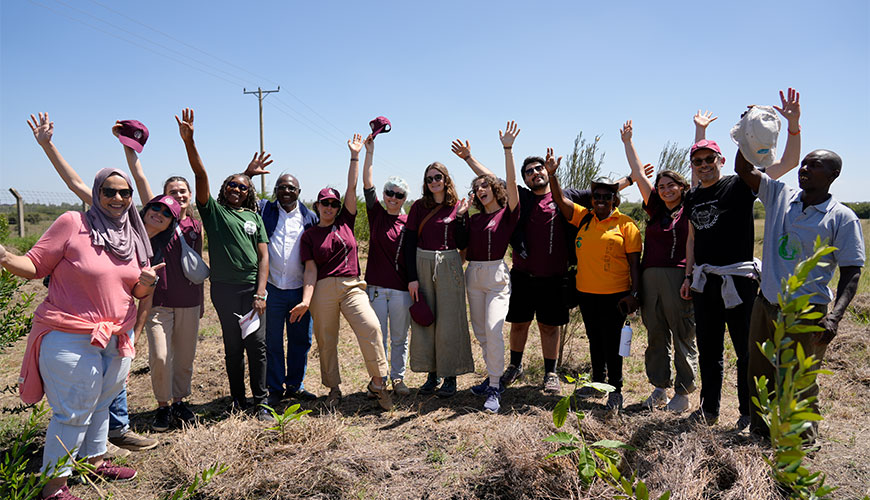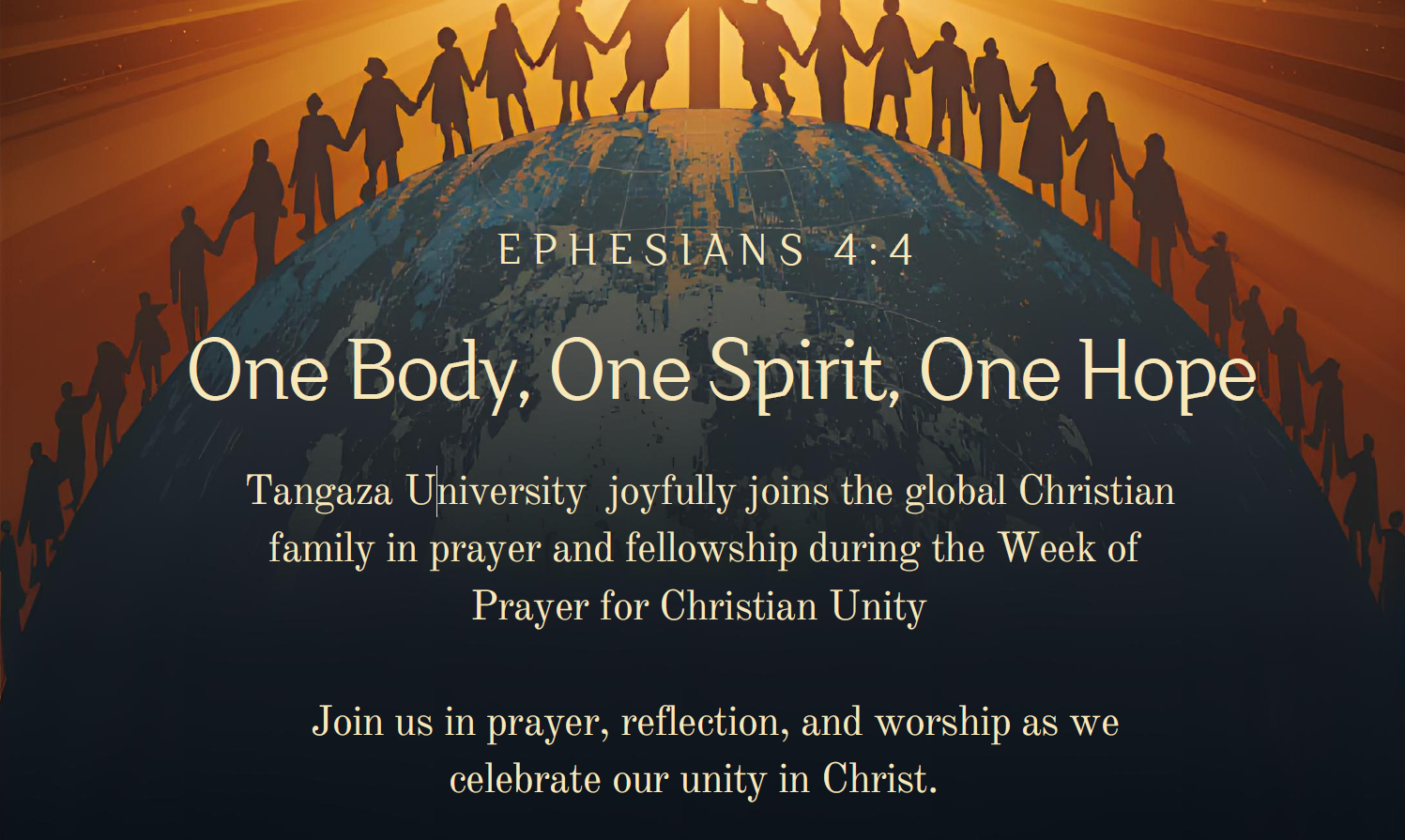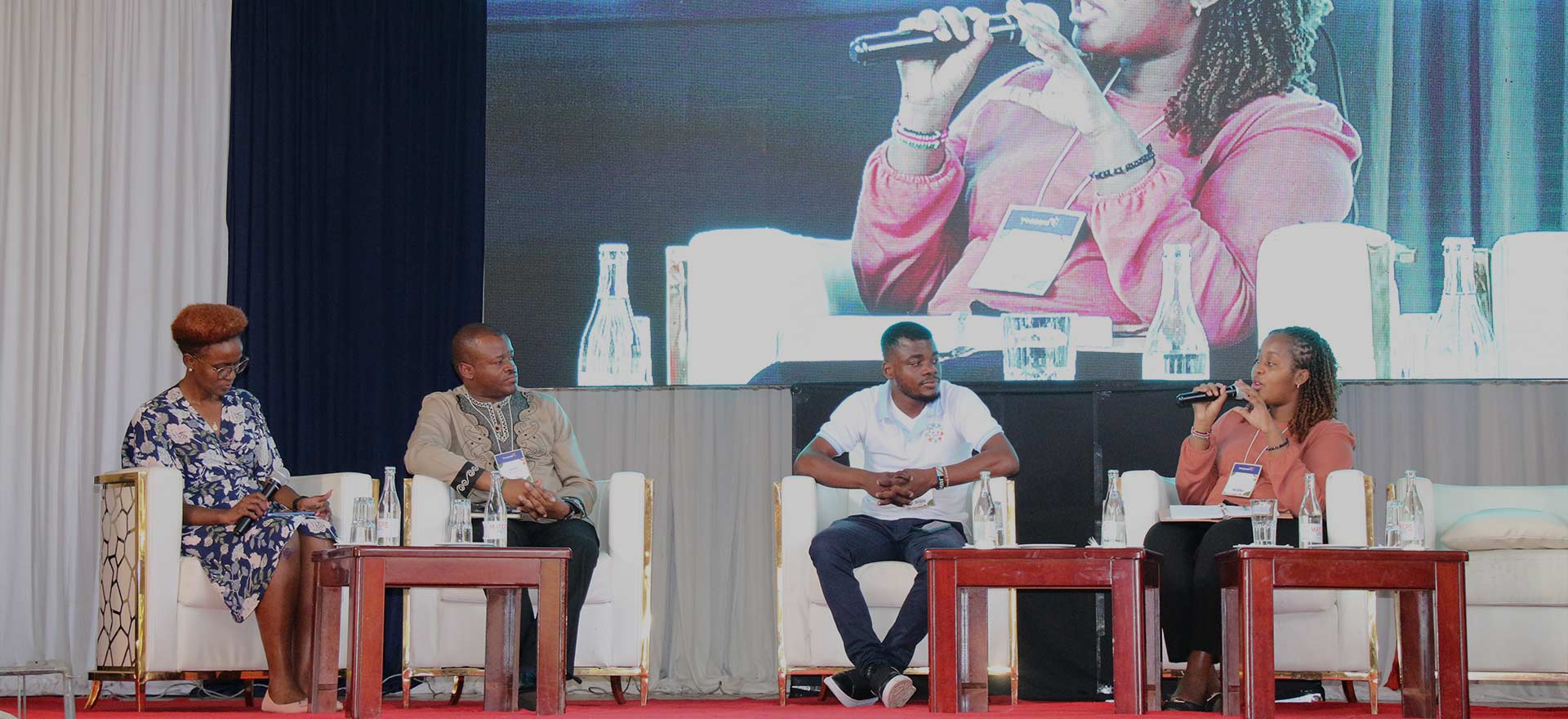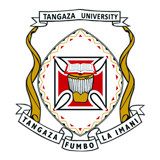Cultivating Change: Ecological Education and Community Engagement through the Kisaju Laudato Si Garden Initiative.
At Tangaza University, we are committed to ensuring that our core functions of research, community engagement, and teaching are interwoven. We aim to prepare our students to address the pressing needs of society by offering experiential learning opportunities that foster real-world problem-solving skills. One of the schools at the forefront of this effort is the School of Arts and Social Sciences, which offers a range of practical courses in areas such as communication, counseling, leadership and management, as well as human development under the Institute for Social Transformation.
The Institute for Social Transformation is home to two unique programs under the Yunus Social Business Centre, Laudato Si and Social Innovation Sand Box which promotes social innovation among students. Central to this mission is the emphasis on experiential learning, where students collaborate with their lecturers to co-create solutions for social challenges.
On October 5th 2024, as Laudato Si concluded the Season of Creation, we launched a market garden at Kisaju. Spanning one acre, this project aims to showcase innovative and resilient approaches to addressing climate challenges, aligning with the Yunus Center’s goal of creating a “world of three zeros” and promoting integral ecology. The garden is designed to serve multiple purposes, including demonstrating sustainable practices that confront the climate crisis.
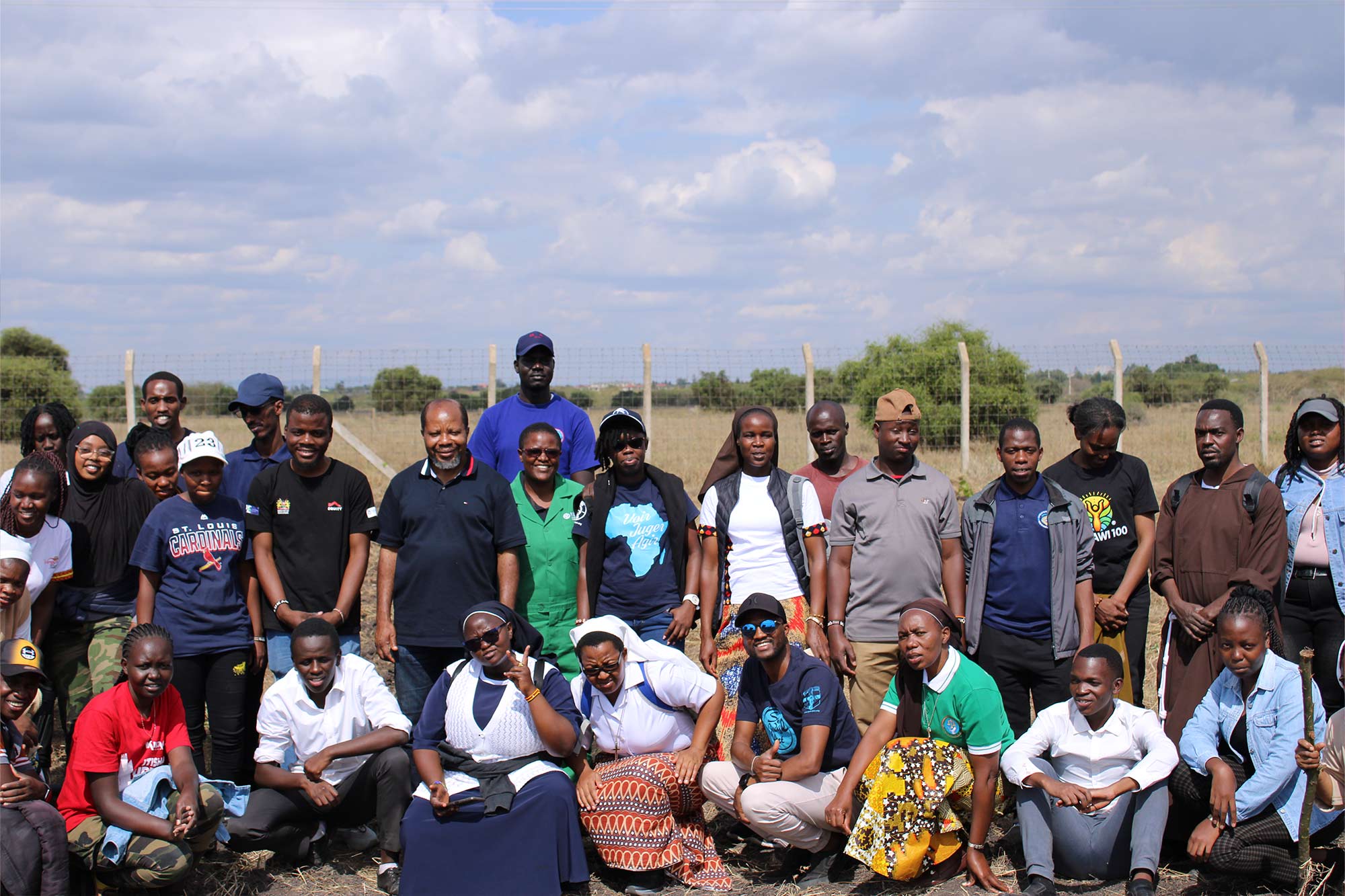
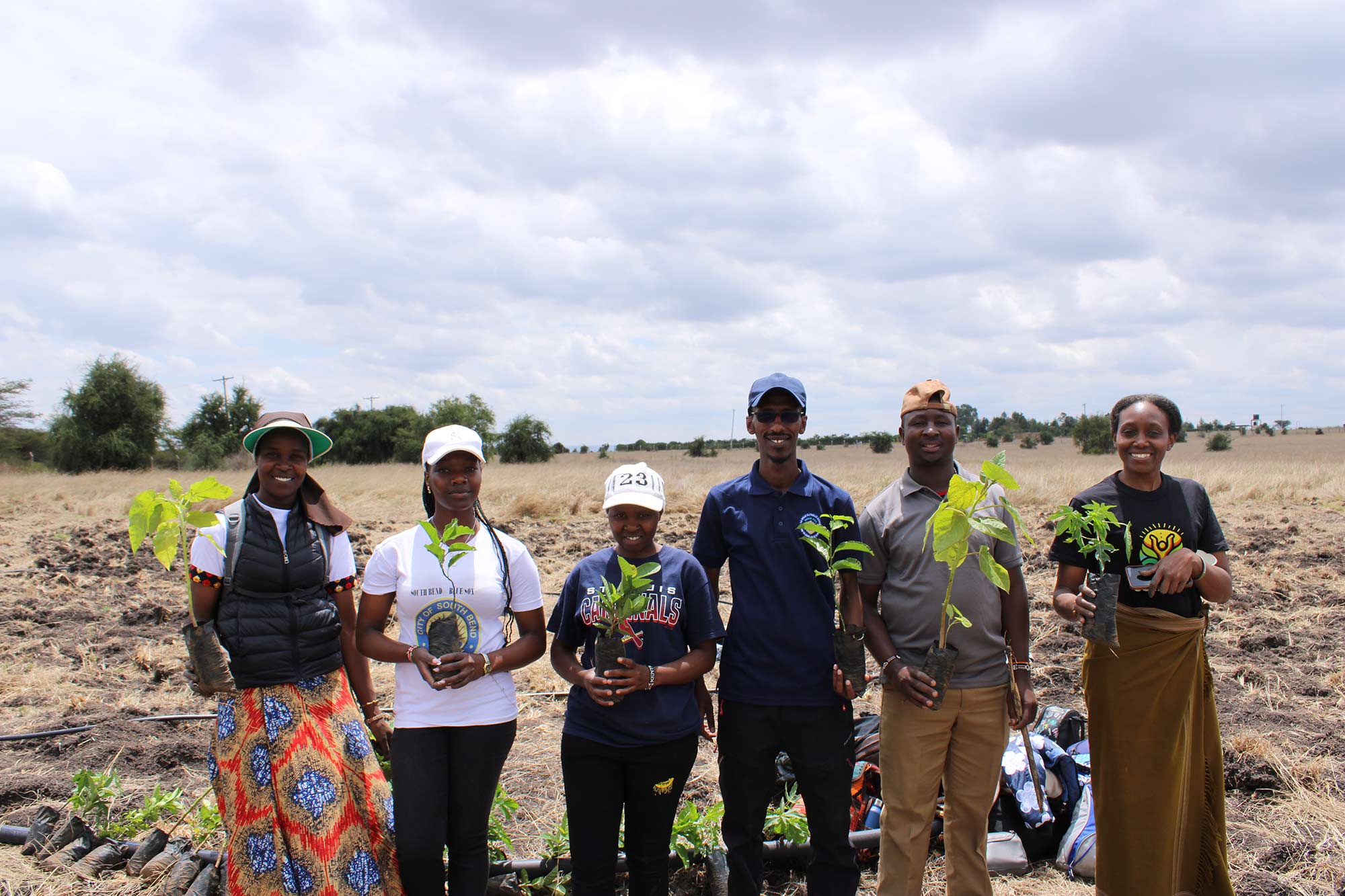
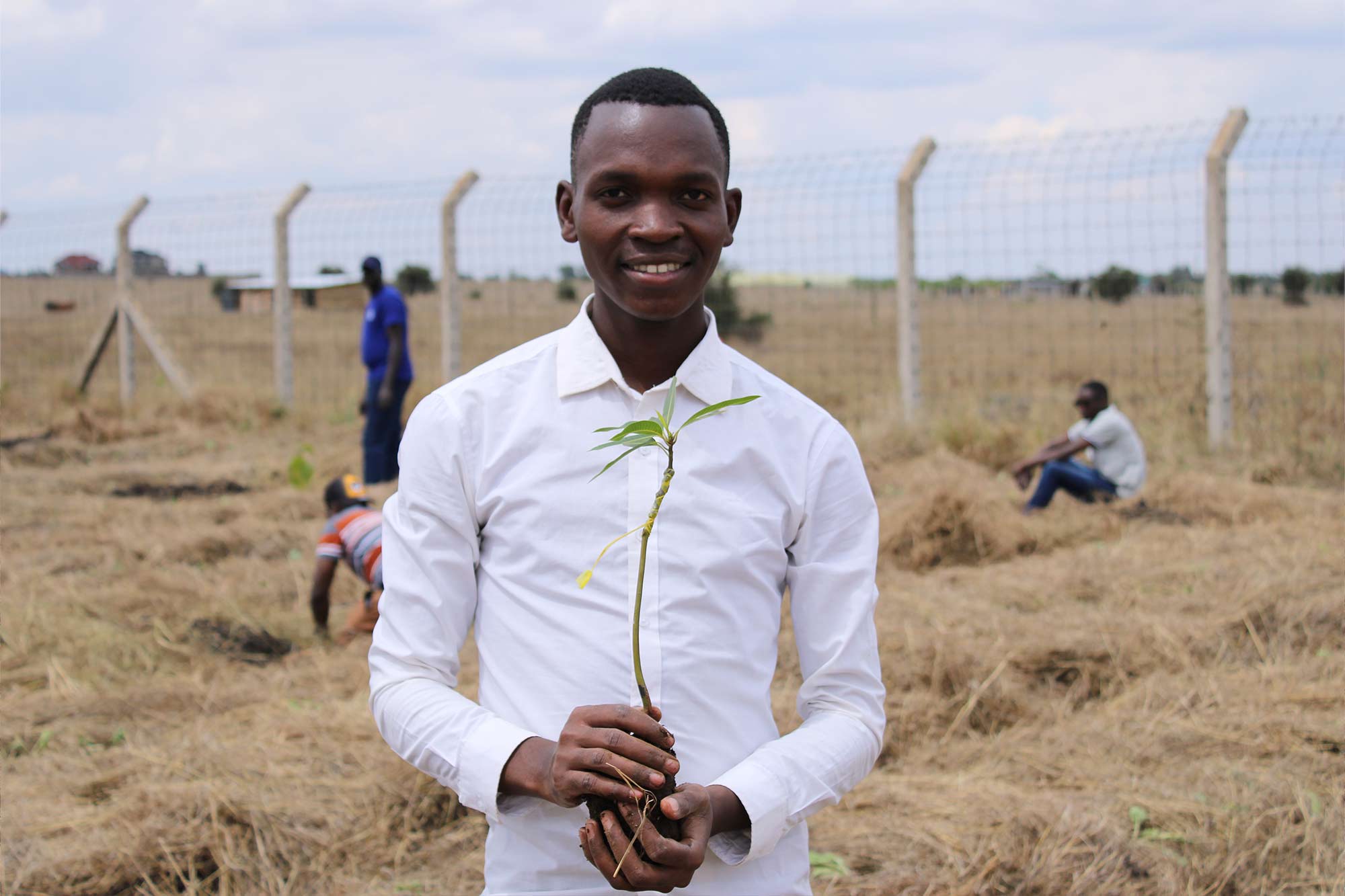

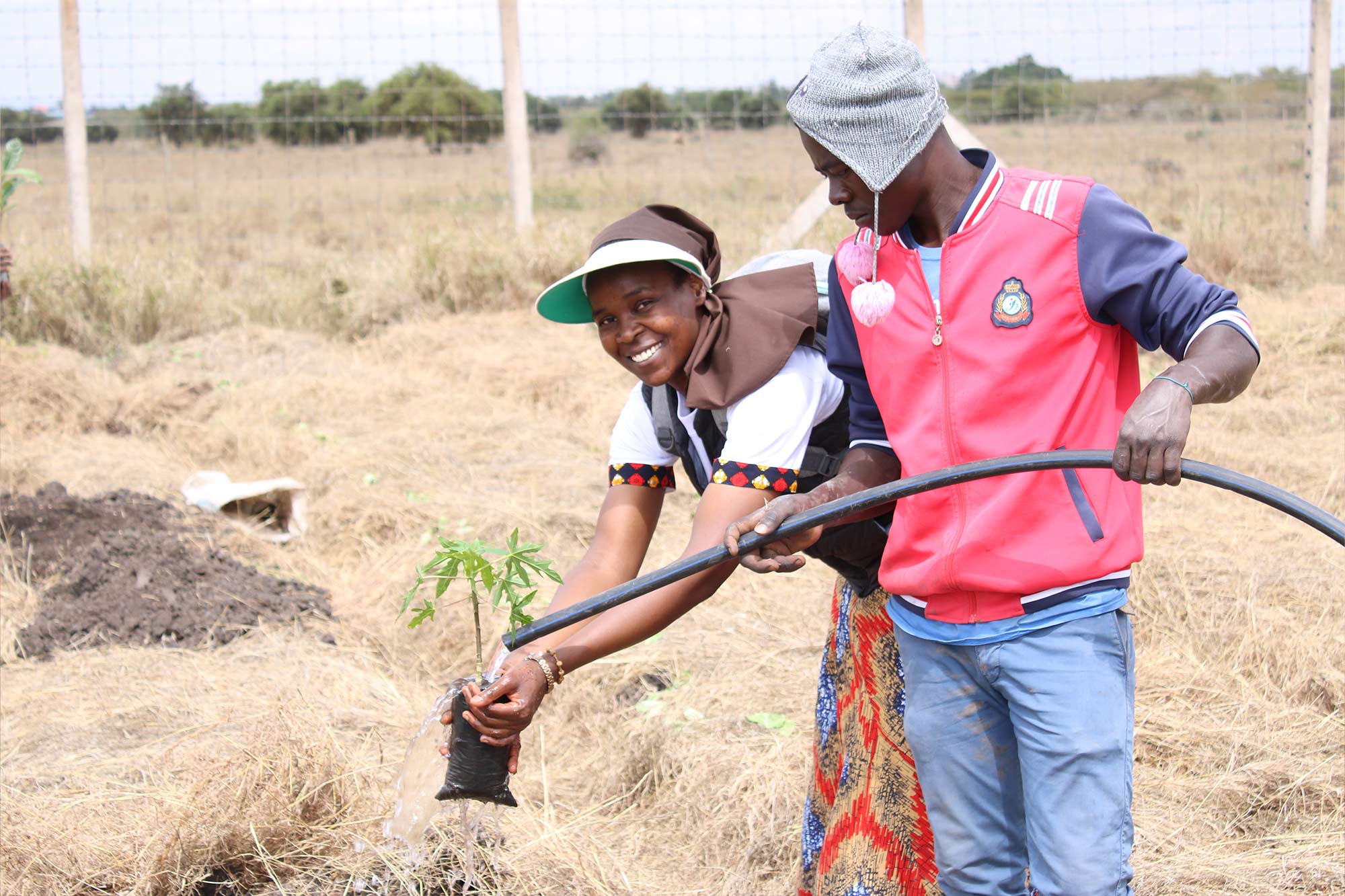
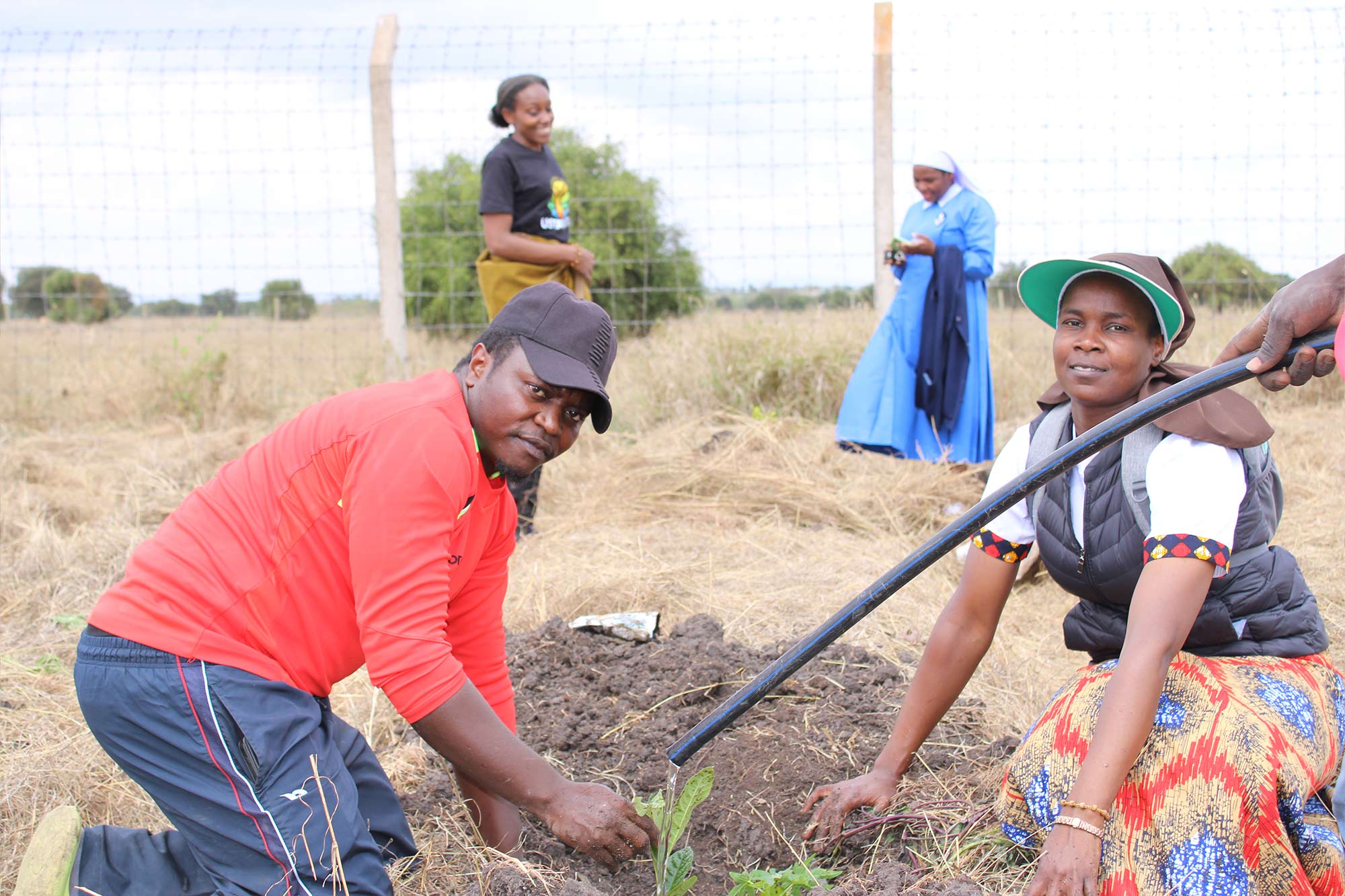

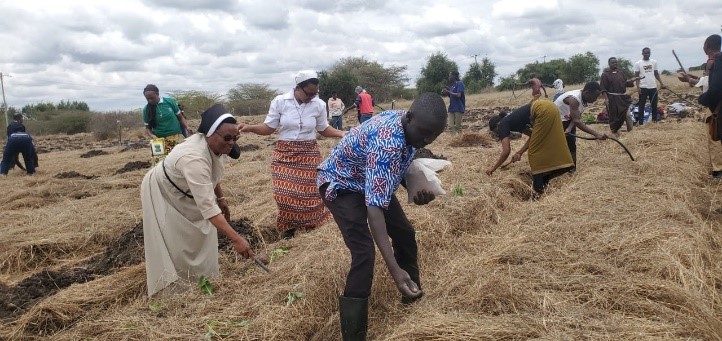
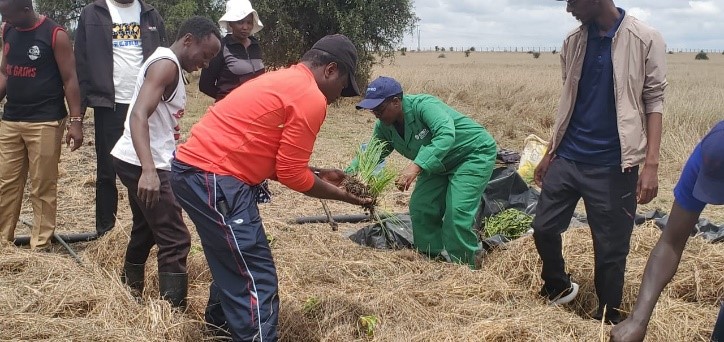







Guided by our expert James Kagwe , students engaged in the garden’s design, learning how to adapt land use to various soil types and climatic conditions. They were introduced to essential techniques such as mulching, which helps retain soil moisture. In a practical demonstration, we measured the temperature of soil from both mulched and unmulched areas to emphasize the importance of this technique. Discussions extended to the concept of integrated land design, which accommodates different varieties of crops and promotes year-round harvests while supporting rich biodiversity. The experience was enlightening, pushing students to critically evaluate conventional agricultural practices they had learned from a Western education system. It became clear that there is a need to unlearn some outdated approaches and embrace innovative practices, particularly those rooted in indigenous knowledge.



This hands-on experience at the Kisaju garden provided a valuable opportunity for students to break away from Eurocentric approaches that have, at times, overlooked indigenous methods. The discussions reinforced the Institute for Social Transformation’s focus on “decolonizing the mind” by encouraging an appreciation of indigenous agricultural practices that ensure biodiversity and sustainability. The collaborative and interdisciplinary nature of the project, which involved students from different institutes and schools further highlighted the importance of multi-disciplinary approaches in addressing complex challenges. This type of learning is not only enriching but also essential for cultivating well-rounded, socially conscious graduates. We are committed to strengthening interdisciplinary learning and encouraging students to collaborate with various industry partners. Community members from the Maasai community contributed valuable insights about their culture, enriching the experience further. Additionally, representatives from the International Youth Catholic Students shared their perspectives and supported the project by donating 40 trees. The Justice and Peace of Tangaza were also present and they supported the project with some fruit trees. Ultimately, the key takeaway is that learning should be experiential and collaborative, fostering a shared commitment to sustainability and community development.







